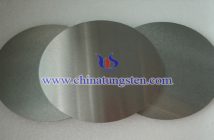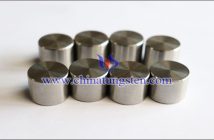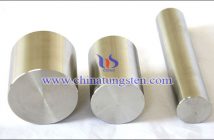Tungsten oxide is the potential oxide material in the energy field for its rich content in the earth, highly adjustable composition, high chemical stability at low pH value and excellent conductivity. Now it has wide application in seven fields including electrochromic and photochromic, lithium-ion battery anode materials and heat insulation materials, etc.

1.0 Used in electrochromism and photochromism
In the past few decades, electrochromic device based on WO3 has been widely studied, there are many types of electrochromic devices, of which the most widely used and simplest type is sandwich structure including electrochromic layer, electrolyte for ion storage, and two transparent conductors for establishing electrical contact. On the other hand, the material also shows photochromic property after light excitation such as inkjet printing, information storage, anti-counterfeiting trademarks and optical sensors.
2.0 Used as photocatalyst for decomposition of oxygen in water
The main goal in the photocatalysis field is to find suitable material for the decomposition of water or degradation of organic pollutants by sunlight. The photocatalytic performance of doped tungsten with Mg, Fe, Co and Au is significantly enhanced compared with undoped tungsten.
3.0 Used as active substance of gas sensor
The tungsten has been widely used in gas sensor field. The response of the gas sensor is based on a series of effects such as electrochemically induced changes in electrical resistance and changes in optical properties.
4.0 Used as Raman enhanced active substrate (SERS)
Now surface enhanced Raman scattering (SERS) spectroscopy has been widely used in single molecule detection, interface reaction monitoring, and in vivo monitoring as sensor. However, the substrates with SERS activity are mainly limited to noble metals, because they have electromagnetic "hot spots", in which the SERS signal is mainly induced by electromagnetic field and is greatly enhanced by non-contact plasma coupling. Because of the high price of precious metal, its industrial production and commercial use will be limited. At present, several SERS active substrates without noble metals have been demonstrated, including semiconductor nanoparticles or nanostructures.
5.0 Used as photothermal conversion agent
Tungsten oxide, especially non stoichiometric materials, is current hot topic in photothermal therapy (PTT). Generally in PTT photothermal agent kills tumor cells through photothermal conversion, as the penetration depth of near-infrared light (NIR) in tissues is much deeper than that of visible light, therefore NIR is usually used as light source for photothermal therapy.
6.0 Used as electrocatalyst for hydrogen decomposition
Electrocatalytic decomposition of hydrogen in aquatic products has attracted wide attention because it can provide clean and high energy density hydrogen energy. It is well known that Pt is the most effective electrocatalyst in the study of pyrolysis water. However, as precious metal Pt is high in price and low in global reserve, it is quite important to develop cheap and abundant materials for electrocatalytic decomposition of water. Now simple preparation methods are available.
 7.0 Used in lithium ion battery
7.0 Used in lithium ion battery
The lithium ion transfer and energy density of Li ion batteries are mainly based on the structure of electrode materials. Compared with commercial fossil ink, metal oxide material shows many advantages such as high energy density, wide applicability and good stability.



